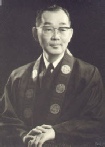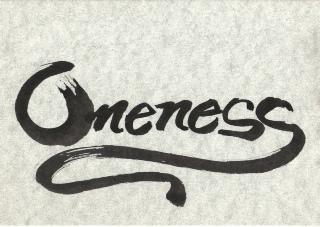



SOCIAL MEDIA
Brightdawn.org © 2020 All rights reserved


Although born in America, Rev. Gyomay M. Kubose spent the early part of his life in Japan where he undoubtedly absorbed a heritage rich in Buddhist influence. Returning to America, he attended the University of California at Berkeley, graduating with a degree in Philosophy in 1935. Then he went to Japan and studied under his teacher, Rev. Haya Akegarasu, at his Dai-
Then he came to Chicago in 1944 and founded the Buddhist Temple of Chicago. In 1949, he accompanied and interpreted for the Abbot and Lady Kocho Otani of the Higashi Honganji, the Eastern Headquarters of Buddhism in Japan, on their US tour. Over the years he helped establish various organizations affiliated with the Temple; such as Boy Scout Troop 515, later followed by Cub Scouts, Explorer Scouts, and Girl Scouts; a Japanese language school; and in 1955, the American Buddhist Association. In 1966 he went to Japan for three years to do special studies in Buddhism at Otani Buddhist University in Kyoto. On his way home from Japan in 1969 he made a world tour. He visited Buddhist historical places in India, toured southeastern countries, and attended the World Buddhist Conference in Malaysia. He visited the Holy Land in Israel, and also went to Rome, Athens, and other European countries.He started the Buddhist Educational Center in Chicago in 1970, which offers courses in Buddhism and Japanese cultural arts. He also established a meditation group. He has lectured widely throughout North America, Peru and Brazil, and in Japan.
Throughout his life, he emphasized and taught non-



Oneness
by Rev. Gyomay M. Kubose
The reality of nature, the reality of life is oneness. But we humans have such a strong egotistic nature. We are the ones who create dualism; we are the ones who talk about two sides: front and back, right and wrong, me and you. As soon as life is dichotomized, tension is created. But when life is harmonized, there are no quarrels, no complaints. Each takes his or her part and does the best. There is totality in oneness. A mother and child are one. A mother forgets danger and risks her life for the child. It is not sacrifice. They are two separate beings but they are one. A mother exhibits an immediate, direct action of oneness. It is a natural act -
Oneness and individuality coexist. There is no question about the importance and uniqueness of each individual life. However, difference is no difference. The very difference is equality, is one. When colorless light is put through a prism it separates into different colors. This very light is all colors; all the colors are one light. Our life is like that: various manifestations, various individualities, but the core of life is one. When we become one, it is colorless no self, no ego. But our narrow, self-


